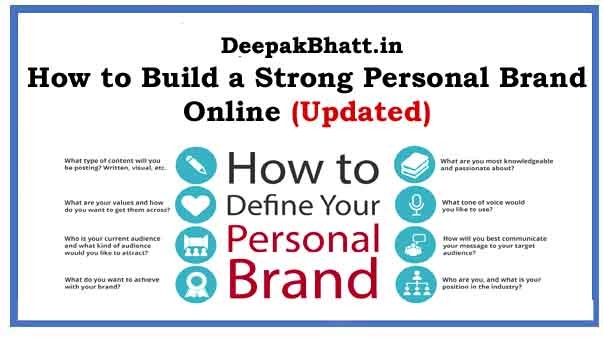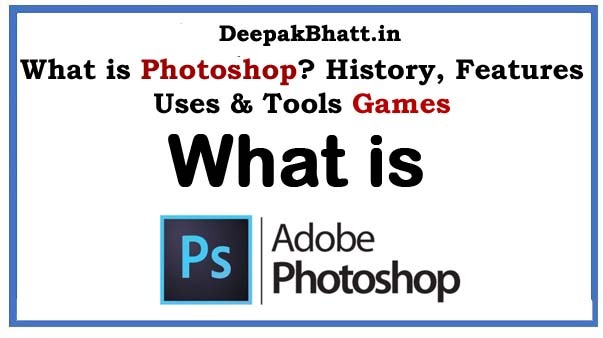How to Build a Strong Personal Brand Personal brand refers to the image and reputation …
That an individual creates for themselves in the minds of others.
It is the way that you market yourself and the unique value that you offer to the world.
How to Build a Strong Personal Brand
In today’s world, personal branding has become increasingly important as individuals look to differentiate themselves in a crowded marketplace. A strong personal brand can help you stand out from the competition, build credibility and trust with your audience, and establish yourself as an authority in your field.
To build a strong personal brand, you need to be intentional about the image that you present to the world. This includes developing a clear understanding of your unique strengths, values, and interests, and communicating these effectively through your online and offline presence.
Some key elements of personal branding include developing a strong online presence through social media and other digital channels, creating a consistent visual identity, and regularly sharing valuable content and insights with your audience. It is also important to actively manage your reputation and maintain a professional image at all times.
Ultimately, personal branding is about creating a strong connection with your audience and positioning yourself as a valuable and trusted resource in your field. By investing in your personal brand, you can build a strong foundation for long-term success and achieve your professional goals.
How to Start a Successful Blog
Top 50 high search title for blog in USA
How to Build a Strong Personal Brand Online
Building a strong personal brand online requires a deliberate and consistent approach. Here are some key steps you can take to build a strong online presence and establish yourself as a thought leader in your field:
1. Define your brand:
Start by identifying your unique strengths, values, and interests. Consider what sets you apart from others in your field, and how you want to be perceived by your audience.
Defining your brand involves identifying your unique strengths, values, and interests, and communicating them effectively to your audience. Here are some steps you can take to define your brand:
Identify your values: Consider what is important to you, both personally and professionally. Your values can help guide your decision-making and shape your brand.
Determine your unique selling proposition (USP): What makes you different from others in your field? What unique skills, experiences, or perspectives do you bring to the table?
Identify your target audience: Who are you trying to reach with your brand? Consider their needs, interests, and pain points, and tailor your messaging accordingly.
Develop your messaging: Use your values, USP, and target audience to craft a clear and compelling brand message. This should communicate who you are, what you stand for, and the value you provide.
Create a visual identity: Develop a visual identity that reflects your brand messaging, including a logo, color scheme, and other design elements.
2.Develop a content strategy:
Create a plan for regularly producing and sharing high-quality content that aligns with your brand and provides value to your audience. This can include blog posts, videos, podcasts, and social media updates.
Developing a content strategy involves creating a plan for producing and sharing content that aligns with your brand and provides value to your audience. Here are some steps you can take to develop a content strategy:
Define your goals: Consider what you want to achieve through your content, such as building brand awareness, establishing yourself as a thought leader, or generating leads.
Identify your target audience: Who are you trying to reach with your content? Consider their interests, needs, and pain points, and tailor your content accordingly.
Choose your channels: Determine which channels you will use to distribute your content, such as your blog, social media, email marketing, or video platforms.
Brainstorm content ideas: Develop a list of topics and themes that align with your brand and provide value to your audience. This can include educational articles, how-to guides, opinion pieces, or industry news.
Plan your content calendar: Create a schedule for producing and publishing your content, including deadlines and milestones.
Create and publish your content: Use your content ideas and calendar to create and publish high-quality content that aligns with your brand and provides value to your audience.
Measure and evaluate your results: Regularly track and evaluate the performance of your content, using metrics such as engagement, shares, leads generated, and website traffic. Use this information to refine your content strategy over time.
3. Build your online presence:
Create profiles on social media platforms and other relevant websites, and ensure that your branding and messaging is consistent across all channels. Use keywords related to your area of expertise to help people find you online.
Building your online presence involves creating profiles on relevant websites and social media platforms, and ensuring that your branding and messaging is consistent across all channels. Here are some steps you can take to build your online presence:
Identify relevant platforms: Determine which websites and social media platforms are most relevant to your brand and target audience. This may include LinkedIn, Twitter, Facebook, Instagram, or other industry-specific platforms.
Develop a consistent visual identity: Use your brand messaging and visual identity to create consistent profiles across all channels, including your profile picture, cover photo, bio, and other design elements.
Optimize your profiles: Use keywords related to your area of expertise to help people find you online. This can include optimizing your profile headline, summary, and job titles.
Engage with your audience: Regularly post updates and engage with your audience by responding to comments and questions, participating in online conversations, and offering valuable insights and advice.
Share valuable content: Use your content strategy to create and share valuable content that aligns with your brand and provides value to your audience. This can include blog posts, videos, podcasts, and social media updates.
Participate in industry events: Attend industry events and participate in online conversations related to your field. This can help you build relationships with other professionals and establish yourself as a thought leader in your field.
4. Engage with your audience:
Build relationships with your audience by responding to comments and questions, participating in online conversations, and offering valuable insights and advice.
Engaging with your audience is an important part of building a strong personal brand online. Here are some tips on how to engage with your audience:
Respond to comments: Whenever someone comments on your blog, social media post, or any other platform where you have a presence, make sure to respond in a timely and helpful manner. This shows that you are listening and that you value their opinion.
Ask questions: Ask your audience questions to encourage them to engage with you. This could be something as simple as asking for their opinion on a particular topic or asking them to share their own experiences.
Conduct polls and surveys: Polls and surveys are a great way to engage with your audience and get their feedback on specific topics. Use online tools like SurveyMonkey or Google Forms to create your surveys.
Use live video: Live video is a great way to engage with your audience in real-time. You can use platforms like Facebook Live, Instagram Live, or YouTube Live to host Q&A sessions, share behind-the-scenes glimpses, or simply connect with your audience.
Create interactive content: Interactive content, such as quizzes, polls, and contests, are great ways to engage with your audience and get them to participate. This type of content can be shared on social media, your website, or through email.
Participate in industry events, speak at conferences, and share your expertise through interviews and guest blog posts. This will help you build credibility and establish yourself as a thought leader in your field.
Establishing yourself as an authority in your niche is important for building a strong personal brand online. Here are some strategies that can help you do so:
Share valuable content: Providing high-quality, informative content is essential to establishing yourself as an authority. This can be in the form of blog posts, videos, podcasts, webinars, or any other medium that allows you to share your knowledge with your audience.
Stay up-to-date with industry news and trends: Stay informed about the latest news and trends in your industry. Follow relevant influencers and thought leaders on social media, read industry publications and blogs, and attend industry events to stay on top of the latest developments.
Share your expertise: Look for opportunities to share your expertise with others. This could be by speaking at conferences, participating in podcasts, or writing guest posts for other blogs. By sharing your knowledge and experience, you can establish yourself as an authority in your field.
Build a strong online presence: Your online presence is a key part of establishing yourself as an authority. Make sure your website, social media profiles, and other online assets are professional and up-to-date. Engage with your audience regularly and respond to comments and questions promptly.
Network with others in your industry: Networking with other professionals in your industry can help you establish yourself as an authority. Attend conferences, participate in industry groups on social media, and connect with other thought leaders in your field.
Complete Ultimate Goal Setting with Online Free Course
How to Achieve SMART Goals Free Video Course
How to Make Successful Goal Setting with Online Video Course
6. Monitor your online reputation:
Regularly monitor your online presence and respond promptly to any negative feedback or criticism. Use tools like Google Alerts or Mention to keep track of mentions of your brand online.
Monitoring your online reputation is an important aspect of building a strong personal brand online. Here are some strategies to help you monitor your online reputation:
Google yourself: Conduct a Google search of your name regularly to see what information comes up. This can help you identify any negative or inaccurate information that may be harming your reputation.
Set up Google Alerts: Set up Google Alerts for your name and other relevant keywords related to your industry or brand. This will notify you whenever new content is published online that includes those keywords.
Monitor social media: Keep an eye on social media mentions of your name or brand. Use tools like Hootsuite or Sprout Social to monitor your social media accounts and respond to comments and messages in a timely manner.
Respond to negative reviews: If you receive negative reviews on sites like Yelp or Google My Business, respond in a professional and helpful manner. This shows that you care about your customers and are willing to address their concerns.
Be proactive: It’s important to be proactive in managing your online reputation. Regularly create positive content about yourself or your brand, such as blog posts, social media updates, or videos. This will help push down any negative content that may exist online.
By following these steps and consistently building your online presence, you can create a strong personal brand that helps you stand out in your field and achieve your professional goals.

















